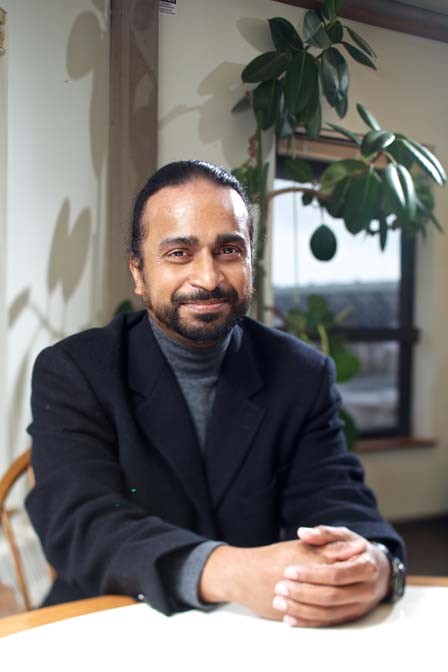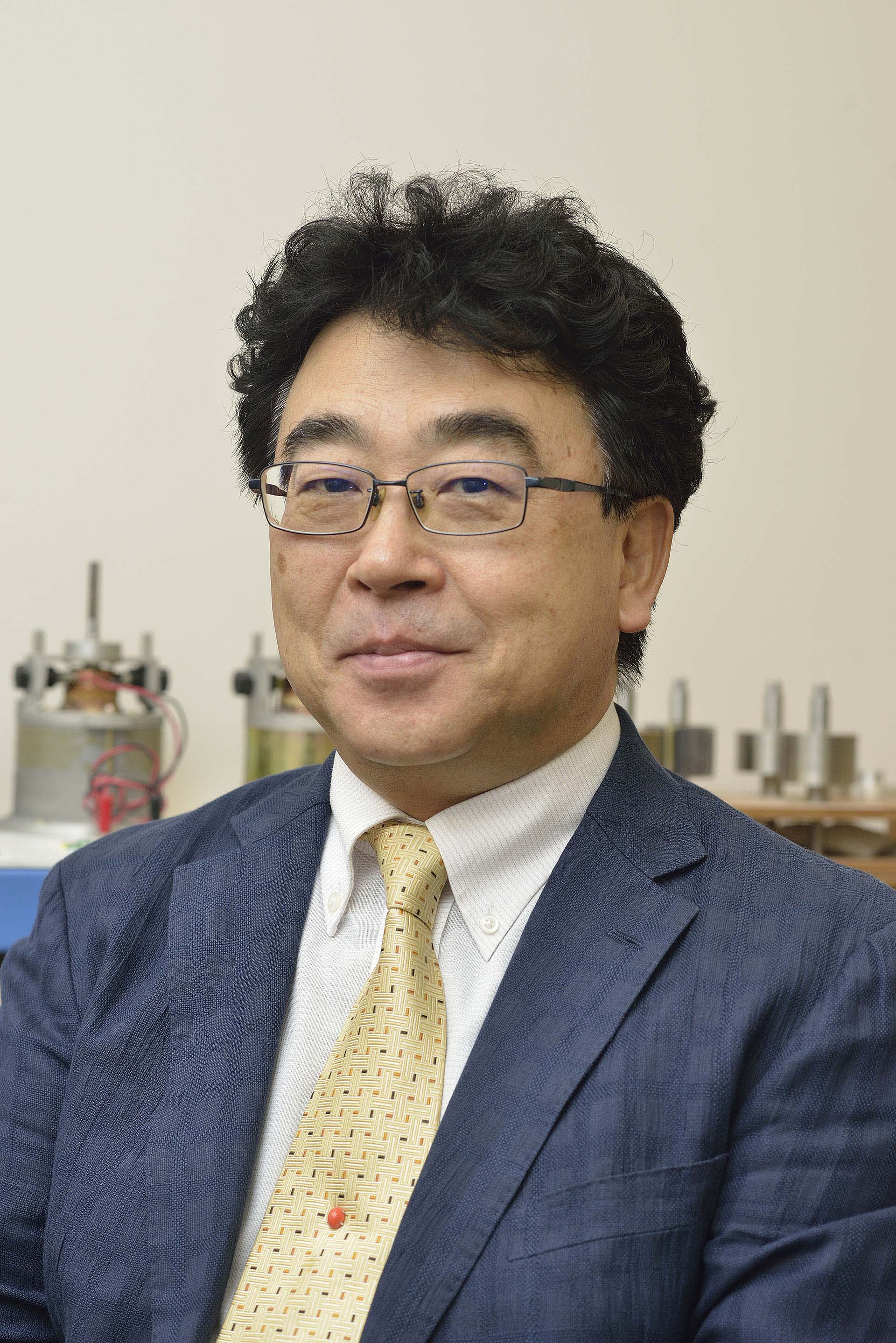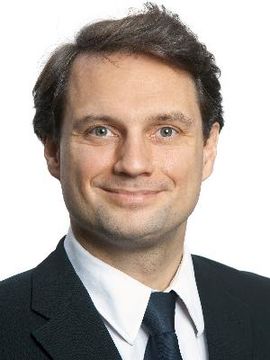PLENARY SESSIONS
We are pleased to announce the following plenary speakers:
Iterative Control for Networked Heterogeneous Multi-Agent Systems
with Uncertainties

Professor Santosh Devasia
University of Washington, United States of America
Abstract:with Uncertainties

Professor Santosh Devasia
University of Washington, United States of America
This talk discusses the convergence of iterative control for networked, heterogeneous multi-agent systems, where each agent has potentially different dynamics and uncertainties. Such control can be important in adhesively bonding for manufacturing or repair of large high-strength (carbon-fiber) composite structures such as aircraft wing or wind turbines. Substructures near the bonding area tend to change the thermal dynamics, and iterative control of the distributed heaters offers a potential solution to achieve the desired temperature profiles in the bondline. However, the challenge is to ensure convergence of such iterative control especially since convergence of iterative control for each individual sub-system (heaters) does not guarantee convergence under a networked setting. Towards addressing such problems, this talk will review convergence conditions for a single linear system, and then quantify the acceptable modeling uncertainty for ensuring convergence of the proposed iterative approach for collaborative tracking. Convergence conditions are also established for the case when inversion-based iterative control of each individual agent are conjoined using a network graph structure.
Biography:
Santosh Devasia received the B.Tech. (Hons) from the Indian Institute of Technology, Kharagpur, India, in 1988, and the M.S. and Ph.D. degrees in Mechanical Engineering (ME) from the University of California at Santa Barbara in 1990 and 1993 respectively. He is the Director of the Boeing Advanced Research Center (BARC) at the University of Washington (UW) https://depts.washington.edu/barc/ and a Professor of Mechanical Engineering at the UW, Seattle where he joined in 2000 after teaching from 1994 to 2000 in the ME Department at the University of Utah, Salt Lake City. He served as the Associate Chair of the ME Department at UW from 2010-2013, and as the Associate Dean of Research and Faculty Affairs in the College of Engineering at UW from 2013-2017. He is the General Chair for the 2020 American Control Conference and the 2023 Advanced Intelligent Mechatronics Conference. He is a fellow of ASME and IEEE. His current research interests include control of multi-agent systems and precision human-machine systems. Additional details of current efforts can be found at: https://faculty.washington.edu/devasia/
Motion Control of EV and Paradigm Shift to Motor/Capacitor/Wireless

Professor Yoichi Hori
The University of Tokyo, Japan
Abstract:
Professor Yoichi Hori
The University of Tokyo, Japan
The most distinct advantage of the electric vehicle is electric motor’s quick and precise torque generation. However, most electric vehicles developed to date have not yet utilized it. I named this technique "Motion Control of EV" and have been demonstrating its basic effectiveness of various proposed methods like adhesion control by using some really made experimental EVs.
On the other hand, "Motor", "Capacitor" and "Wireless" will be the key technologies for cars 100 years later, instead of "Engine", "Battery" and "Quick charge". Future cars must be driven by electric motors, but we still have lots of problems in energy supply. Why are electric vehicles supposed to be charged with "stopped", in a "short time", and by "big energy", even though the energy form of electricity is completely different from that of gasoline. Super-capacitors and wireless power transfer to EVS in motion will play an important role in the future EV world by drastically reducing too big usage of recent high-capacity batteries.
Biography:
Yoichi Hori received his B.S., M.S., and Ph.D. degrees in Electrical Engineering from the University of Tokyo, Tokyo, Japan, in 1978, 1980, and 1983, respectively. In 1983, he joined the Department of Electrical Engineering, The University of Tokyo, as a Research Associate. He later became an Assistant Professor, an Associate Professor, and, in 2000, a Professor at the same university. In 2002, he moved to the Institute of Industrial Science as a Professor in the Information and System Division, and in 2008, to the Department of Advanced Energy, Graduate School of Frontier Sciences, the University of Tokyo. From 1991-1992, he was a Visiting Researcher at the University of California at Berkeley. His research fields are control theory and its industrial applications to motion control, mechatronics, robotics, electric vehicles, etc. Recently, he is interested in wireless power transfer system. He is IEEE (the Institute of Electrical and Electronics Engineers) Life Fellow and a past AdCom member of IES (Industrial Electronics Society). He has been the Treasurer of the IEEE Japan Council and Tokyo Section in a few years since 2001. He is now IEEJ (the Institute of Electrical Engineers of Japan) Fellow and JSAE (the Society of Automotive Engineers of Japan) Fellow, and also a member of the Society of Instrument and Control Engineers, Robotics Society of Japan, Japan Society of Mechanical Engineers, and so on. He was the President of the Industry Applications Society of the IEEJ, and the President of WEVA (World Electric Vehicle Association), and the Director of Japan Automobile Research Institute (JARI). He is now the President of Capacitors Forum, the Chairman of Motor Technology Symposium of JMA (Japan Management Association), the Representative Director of NeV (Next Generation Vehicle Promotion Center), and the Vice-President of JSAE since June 2020. He is the winner of the Best Transactions Paper Award from the IEEE Transactions on Industrial Electronics in 1993, 2001 and 2013, of the 2000 Best Transactions Paper Award from IEEJ, and 2011 Achievement Award of IEEJ.
Digital Twins entering Power Systems

Professor Peter Palensky
TU Delft, The Netherlands
Abstract:
Professor Peter Palensky
TU Delft, The Netherlands
Digital Twins are an established tool in avionics and automotive industry. A digital model is created for all components and systems in order to create a virtual "mockup" of the vehicle or the aircraft. Doing so allows for early interoperability testing of components, or the analysis of oscillation modes long before the real prototype is built. This technique now enters other sectors, with the power sector being one of the more conservative ones. Power systems are planned and operated using models already, with a large variety in model fidelity, workflow, and stakeholders involved. They are typically used in an off-line fashion, to support design decisions or to validate post-mortem analysis in case of faults. The recent introduction of digital controls and the trend of integrated energy systems, however, makes models complex and modeling complicated. So the goal is to overcome the static use of numerical models, and to use them in an on-line way.
Real-time cyber-physical digital twins, that are synchronized with the real system and that receive updated model parameters have the promise to begin power system operations a step further. In this talk I will explain how hybrid models can be developed, how they can be used, and show examples where power system digital twins are used already.
Biography:
Peter Palensky is a professor of intelligent electric power grids at Technische Universiteit (TU) Delft, The Netherlands, and the scientific director of the PowerWeb institute. He previously worked as the principal scientist for complex energy Systems at the Austrian Institute of Technology (AIT)/Energy Department, Austria; head of business unit "Sustainable Building Technologies" at the AIT; chief technology officer of Envidatec Corp., Hamburg, Germany; associate professor at the University of Pretoria, South Africa; and researcher at the Lawrence Berkeley National Laboratory, California. He works on the digital aspects of intelligent energy systems and operates an RTDS-based power system digital twin at TU Delft. He is a Member of the IEEE Industrial Electronics Society and Editor in Chief of the IEEE Industrial Electronics Magazine.
